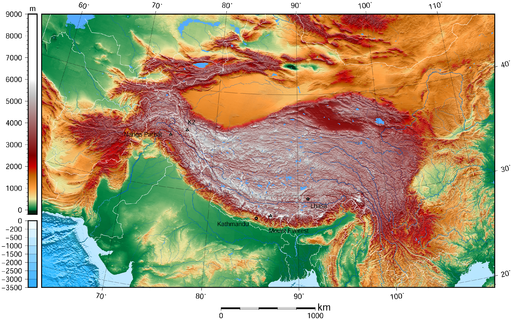Tag: NASA
-
Sign Up for the 2023 ICESat-2 Cloud Hackweek

Don’t miss your chance to sign up for our ICESat-2 Cloud Hackweek! This in-person, collaborative event will take place on the UW campus in Seattle from August 7th through 11th, 2023. Hackweeks are participant-driven events that strive to create welcoming spaces for participants to learn new things, build community and gain hands-on experience with collaboration…
-
2022 Hackweek Participant Testimonials

This year the eScience Institute hosted another summer of our hackweek programs, including the SnowEx Hackweek in July and the NeuroHackademy program in August. Hackweeks are intentionally designed to foster an environment of collaboration among participants, and include participants from around the world. Here are some reflections shared by participants in our 2022 programs: SnowEx…
-
Evolving the Hackweek Model with ICESat-2 2022

By: Scott Henderson and Louisa Gaylord The eScience Institute hosts a variety of hackweeks every year, which are designed to immerse participants in collaborative project work around a specific topic. Hackweeks try to blend elements of a hackathon, where participants work collaboratively in project teams, with tutorials on a variety of data science topics in…
-
Testimonials from our Summer 2021 Hackweek Programs

This year the eScience Institute hosted another summer of our hackweek programs, including OceanHackweek, SnowEx Hackweek and NeuroHackademy. The sudden shift to a remote setting in spring 2020 brought new challenges for our eScience research team, and we came away with some valuable lessons learned and ideas to incorporate into this year’s iterations of hackweeks.…
-
UW researchers are changing the way we use satellite observations of Earth

The University of Washington, along with collaborators from the National Center for Atmospheric Research (NCAR), Anaconda, and Element84 have just been awarded a $1.5 million grant from the National Aeronautics and Space Administration (NASA) to develop new approaches for using satellite observations of Earth. The team will work with the Pangeo Project, a community effort…
-
NASA High Mountain Asia Project

By Robin Brooks Over one billion people live downstream of the region referred to as High Mountain Asia, an area ranging from the Hindu Kush and Tien Shan in the west to the Eastern Himalaya, and home to “the world’s largest reservoir of perennial glaciers and snow outside of the Earth’s polar ice sheets”. The…

